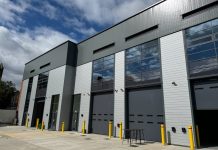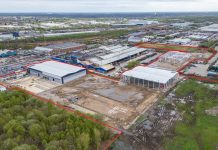At Colliers International’s post-election economic forecast, Anatole Kaletsky – famed economist and former business and finance reporter for The Economist, The Financial Times, The Times and Reuters – argued the cause for empowering Britain’s regions, claiming HS3 should be delivered before HS2.
The economist claimed if a Government was serious about building a Northern Powerhouse then it should build HS3, linking Liverpool, Manchester and Leeds as a priority and before HS2, as the much improved connectivity will stimulate the cross-flow of business activity throughout this region. Otherwise it is likely to perpetuate the existing regional imbalances.
He stated Britain was the most predictable economy and haven of stability for the past five years, which is why it has attracted significant international investment resulting in the UK becoming reliant on foreign capital inflow. This has been especially apparent within the residential property sector and directly led to greater consumer confidence and household spending that fuelled the recovery. George Osborne’s ‘Help to Buy’ scheme was pivotal. Britain’s haven status has also supported the commercial property sectors UK wide.
Kaletsky said international capital investment, especially from China and Asia, is interested primarily in large-scale infrastructure projects totalling billions, not millions of pounds, and produce predictable returns over a long periods of time, making projects such as HS3 an attractive opportunity.
Colliers International Research Director and Economist, Dr Walter Boettcher, added, “Following Kaletsky’s presentation I am even more convinced we have a once in a generation opportunity to capitalise on significant, long-term regeneration. We haven’t seen this much money available and willing to plough into infrastructure in decades.
“Infrastructure projects like HS3 or rejuvenation of the ports will also help to stimulate the commercial property market outside of London. This is likely to have a knock on effect on regional housing markets as Kaletsky’s presentation revealed that residential values in some areas of the North are still 20% below the 2007 peak, while London and the South East are well above the previous peak.”
Kaletsky also argued that it would be in a Government’s best interest to turn the ‘powerhouses’ into self-sufficient economies, which is why it’s counterproductive to build a larger runway capacity in London instead of creating an international hub in Manchester.
Kaletsky, whose economic consultancy has offices in Hong Kong and Beijing, also revealed international investors especially from Asia are seeking commercial property assets in secondary locations. Asian investors are particularly enthusiastic about Britain and perceive the island as an entry point into Europe.
Mark Charlton, Colliers Head of Research and Forecasting, added “Much of the new Asian capital targeting commercial real estate in the UK has focused on London and prime trophy assets, whereas Chinese investment has shown a more flexible approach, targeting residential development, infrastructure and some regional markets, for example Gingko Investment’s purchase of 50% (£277 million) of Cabot Square shopping centre, Bristol, and Beijing Construction Engineering Group’s (BCEG) investment of £800 million into Manchester Airport.”
Throughout the presentation, Kaletsky described Britain as having been an island of political and fiscal [tax] stability in recent years, especially in comparison to the chaotic Eurozone; the biggest change post May 7 is how legislative and taxation changes will impact on international capital flows and whether the UK will be perceived as being more unpredictable going forward.
Colliers International hosted Kaletsky’s post-election economic forecast, on Wednesday 29 April at the Dorchester Hotel, London, which was delivered to more than 400 property professionals.






















